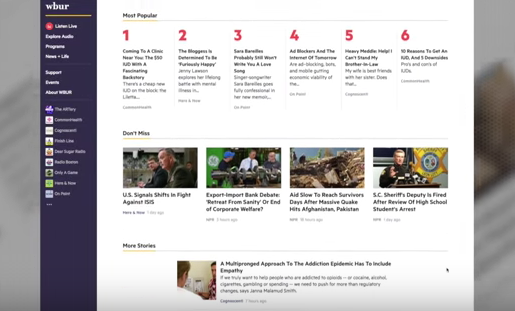This week we explore a tool that checks the authenticity of photos, and we see a new approach to audio news on the Web.
PART 1: Verified Pixel Project
It can be difficult and time-consuming to verify that user-submitted photos really do show what they purport to show, especially during fast-moving news stories. So the Verified Pixel Project aims to speed the process with an automated tool that scans image files looking for clues. Project Lead Samaruddin Stewart shows us what the tool can uncover.
Reporting by Adam Pressler, Reuben Stern and Rachel Wise.
[To skip directly to this segment in YouTube, click here.]
Additional information:
An eventual goal of the project is to integrate the photo verification tool into regular newsroom workflows, but human editors will still be needed to interpret the information generated and decide whether to use a submitted image. More details about the background of the project can be found in this post from project partnerSourcefabric, a developer of open-source media tools.
Tineye reverse image search is used within the Verified Pixel Project. Tineye enables a user to search the Web history of an online photo by copying the URL of the picture into a custom search.
PART 2: Online audio at WBUR
Boston-based NPR-affiliate WBUR is building a new website designed to update the experience of audio news via the Web and to better integrate the station’s programming across platforms. Tiffany Campbell, WBUR executive editor for digital, gives us a peek at the new site and explains the changes.
Reporting by Daniel Shapiro.
[To skip directly to this segment in YouTube, click here.]
Reuben Stern is the deputy director of the Futures Lab at the Reynolds Journalism Institute and host and co-producer of the weekly Futures Lab video update.
 The Reynolds Journalism Institute’s Futures Lab video update features a roundup of fresh ideas, techniques and developments to help spark innovation and change in newsrooms across all media platforms. Visit the RJI website for the full archive of Futures Lab videos, or download the iPad app to watch the show wherever you go. You can also sign up to receive email notification of each new episode.
The Reynolds Journalism Institute’s Futures Lab video update features a roundup of fresh ideas, techniques and developments to help spark innovation and change in newsrooms across all media platforms. Visit the RJI website for the full archive of Futures Lab videos, or download the iPad app to watch the show wherever you go. You can also sign up to receive email notification of each new episode.

